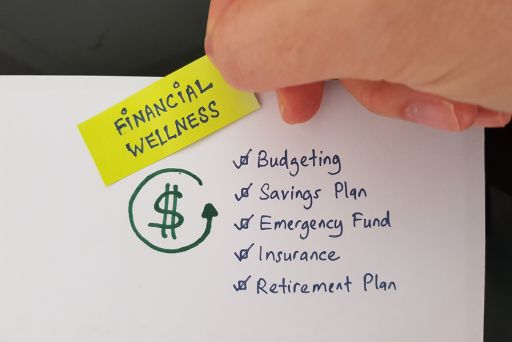
Business costs, taxes, and all that financial stuff might take some time to understand or even a class or two, but you can understand the simple nuts and bolts version within just a few minutes. The important thing, is that you grasp the big picture, so that you can understand the details once it comes tax time or you need to sit down with your accountant. Read on for a brief overview of how business taxes work.
We’re going to cover 3 aspects to business taxes today – with these, you’ll have a firm grasp of what your accountant is talking about (or how to handle the do-it-yourself tax software you’re using) a little bit better. In any business, you’ll need to address the following when it comes to finances and taxes:
- general business costs
- tax deductions
- asset depreciation
General Business Costs
When the say it takes money to make money – they’re talking about business costs. It’s fairly easy to see that to run a business there is always going to be some expense involved. Even if you’re goal is to keep a low overhead, you’re going to have to pay a little to make sure you can keep your shop’s doors open. So lets talk about general business costs.
If you’re just getting started with your business it most likely will fall into one of these 3 categories: 1) brick-and-mortar, 2) online, or 3) service providers. These business types are different than your business entity – you can read more about that here.
Each business may vary a bit in startup costs, but everything on the list below should be considered. If it is an expense for your business, record it. If it isn’t, simply cross it off and make a note on why it’s not an expense for you.
- licenses & permits
- insurance
- lawyer services
- accountant and bookkeeper
- office space
- equipment & supplies
- utilities
- communications – internet and phone lines
- inventory
- employee salaries
- marketing & advertising
- market research – for either promotion or product creation
- printed marketing materials
- website
Once you’ve recorded down the price for those expense which apply to your business, you’ll want to add them all up to get an idea of how much you’ll need to invest to make your business run. Some items have well-defined costs, others are a little more flexible. The most important thing you can do is to estimate (and even estimate a little high) so that you’re not scrambling for cash later.
If you’re in the planning stages before actually starting your business, you’ll want to include details on each of the costs and be as accurate in your figures as you can. You’ll even want to put it in a formal presentation that’s easy to understand if you’re looking to acquire startup funding or secure a loan from a bank or other lending institution.
Looking for ways to cut business costs? We give 20 Quick and Easy Ways to Cut Business Costs here.

Tax Deductions
Odds are you’ve already heard about tax deductions and what they can do for your business. Truth is, tax deductions can be a business owner’s best friend. If you’re wondering what a exactly a tax deduction is, the simplest definition is that it’s a credit that is subtracted from your income and therefore lowers your taxable income.
The IRS allows you to take either a standard deduction or an itemized deduction. With a standard deduction the IRS allows you to deduct a specific amount without requiring an y record keeping or proof of deductions. But standard deductions are only available on personal taxes. An itemized deduction allows you to calculate all of the deductibles you qualify for (which can often be much higher than the standard deduction) and subtract that from your income.
If you want to read more about tax deductions and what the IRS will accept you’ll want to visit this post.
Want to know what tax deductions you might be missing, read the Top 5 Missed Deductions here.
Asset Depreciation
Many businesses rely on at least some physical assets to stay operational. Even if you’re a solopreneur, you’re bound to use a computer, office equipment, a car and so on to accomplish the tasks of your business. But these pieces of equipment don’t last forever, so it’s important that you show that they lose value over time in your company’s books.
First lets cover a bit of vocabulary, so we’re all on the same page.
Depreciation – the act of quantifying the loss of value for a specific item or the portion of an asset’s cost that is consumed during a certain accounting period. As an item depreciates, some of it’s value or profit now becomes an expense, because you’re using up that portion. If you imagine a copy machine that can only give you 5000 copies before it won’t work, the value of that machine would depreciate in value with every copy made until all 5000 copies were used. The same goes for any piece of equipment.
Amortization – refers to intangible assets like contract rights, and intellectual property that has a fair market value. If you were the company that made the 5000 copies copy machine, the blueprints for how to make the machine or the rights to be the sole manufacturer of that machine would be things that might amortize.
It’s easy to confuse the 2, but it’s important to know the difference and even more so to understand how to calculate depreciation. To do so, you’ll need to define the following three things:
- Useful life – the time period the asset can be used before it stop functioning. (for the copy machine it would be 5000 copies)
- Salvage value – the amount of money a company could hope to recover if they sold the asset. (If you were to sell the copy machine before the 5000 copies were up, how much could you make? More if there were more copies available, and less if there were few, etc.)
- Obsolescence – when the asset will become obsolete and need replacement. (in our simple example of the copy machine, it becomes obsolete when the 5000 copies are made; however in real life, we know that copy machines can make more copies if they receive regular maintenance, employees don’t abuse the machine, and we replace the ink cartridges and clean the rollers, etc.)
You’ll then define these values against your asset’s purchase price.
A few things to note:
- depreciation is figured based on the historical value of an item and it’s likely lifespan, as opposed to the cost of replacing it now. For things like cars, computers, and machinery – market value tends to be less than the recorded amount, but for things like property, the market value can be higher than what’s listed in your balance sheet.
- Not all assets depreciate – items that are predicted to last a year or less don’t qualify for depreciation (our 5000 copies copy machine may fall in that category if the company tends to make more than 5000 copies in a year)
- You have to actually own the asset to claim depreciation – so leases on big machinery, buildings, cars aren’t allowed.
The straight-line method of figuring depreciation value is simple:
Depreciation expense = (asset purchase price – salvage value) / useful life

FAQs for Business Costs, Taxes, and Financial Management
1. What are general business costs, and why are they important?
General business costs refer to the expenses necessary to operate a business. These costs include items such as licenses and permits, insurance, office space, equipment, utilities, inventory, and marketing. Understanding and tracking these costs are crucial because they help you budget accurately, ensure your business runs smoothly, and prepare for potential financial challenges. Properly managing these expenses can also impact your tax deductions, as many business costs are deductible.
2. How do tax deductions work for businesses?
Tax deductions reduce the amount of income that is subject to tax, thereby lowering your overall tax liability. For businesses, deductions can be itemized, meaning you list specific expenses such as office supplies, travel, and salaries, which are then subtracted from your income. The IRS allows for these deductions to encourage investment in business operations. Proper documentation and understanding of eligible deductions can significantly reduce the amount of taxes you owe.
3. What is asset depreciation, and how does it affect my business taxes?
Asset depreciation is the process of allocating the cost of a tangible asset over its useful life. This accounting method recognizes that assets like machinery, computers, and vehicles lose value over time. Depreciation reduces taxable income by treating the loss in value as an expense. It’s calculated using the asset’s purchase price, its useful life, and its salvage value. Accurate depreciation accounting can provide tax benefits by reducing your taxable income.
4. Why is it important to estimate business costs accurately?
Accurately estimating business costs is essential for financial planning and stability. It helps you budget effectively, avoid cash flow issues, and ensure that you have enough funds to cover all necessary expenses. Overestimating costs can prevent financial shortfalls, while underestimating can lead to unexpected financial strain. Accurate cost estimation is also crucial when seeking funding or loans, as it demonstrates thorough planning and financial responsibility.
5. What are some common ways to reduce business costs?
There are several strategies to reduce business costs, including:
- Outsourcing non-core activities: Hire freelancers or external firms for tasks like accounting, marketing, or IT support.
- Negotiating with suppliers: Secure better deals or discounts on bulk purchases.
- Reducing utility expenses: Implement energy-saving measures and switch to cost-effective service providers.
- Utilizing technology: Invest in software that automates tasks and improves efficiency.
- Remote work: Allow employees to work from home, reducing the need for office space and associated costs.


















